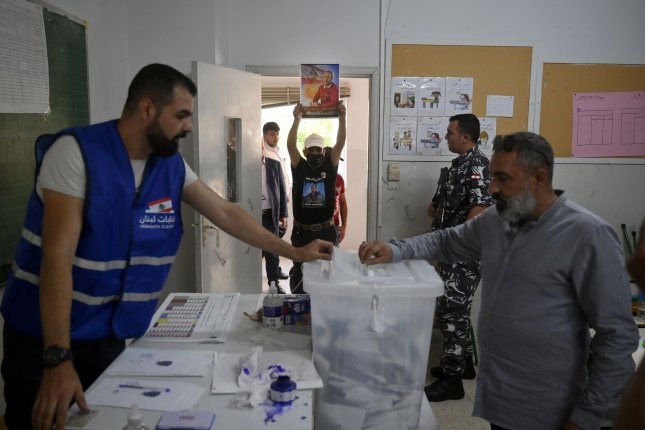
By Daniel Uria
Monday May 16, 2022

Lebanon and Somalia, both facing instability in their governments, are carrying out elections on Sunday.
The parliamentary election in Lebanon is the first since a
popular uprising in 2019 that sought to unseat the ruling class, while
Somalia's presidential election has been delayed for two years and comes as Al
Qaeda-linked Al Shabab militants have expanded their influence over the country.
Since the uprising in Lebanon and the 2020 port explosion in
its capital city of Beirut, residents have been burdened with growing poverty
and unemployment, a dramatic decline in state services, and skyrocketing prices
of food, gasoline and diesel fuel that depleted their savings amid strict bank
restrictions.
About 3.9 million eligible voters in Lebanon are casting
votes to select representatives for its 128-seat parliament -- divided evenly
between mosaic Muslims and Christians -- from a field of more than 718
candidates.
Among those are several anti-establishment candidates,
propelled by the 2019 uprising, which experts expect will be able to win a few
seats but not enough to shift Lebanon's political balance.
The Future Movement, Lebanon's largest Sunni political
party, will not participate in the elections after its leader, three-time prime
minister Saad Hariri, quit politics and urged his constituents to boycott the
race.
However, voters in the capital Beirut -- one of Hariri's
strongest districts -- still turned out in large numbers telling CNN they voted
for "change."
Last week about 142,041 of 244,442 registered expatriate
voters -- 63.05% -- took to the polls last week more than triple their
participation in Lebanon's last election in 2018.
Long lines were seen at voting stations in Beirut's Tareek
el Jdeedeh neighborhood, which typically sees some of the country's lowest
voter turnout.
"The queues we used to stand in were queues of
humiliation," voter Khaled Zaatari told CNN. "This queue is a queue
of pride."
Somalia has not had a one-person-one-vote democratic
election since 1969, instead entrusting the election to a group of 329
lawmakers to select its next president.
The capital, Mogadishu, is on lockdown as the members of
parliament cast their votes with a field of more than 35 candidates, including
one woman.
The winner, however, will ultimately be faced with the task
of regaining control of the country from Al Shabab as residents wonder whether
a change in political leadership will have any impact at all.
"While the government is busy with itself, we are
suffering," Somali business owner Abdow Omar told The New York Times.
"The Shabab are like a mafia group. You either have to obey them or close
your business. There's no freedom."
Somalia also has faced rising inflation, with food prices
climbing sharply due to drought and a loss of wheat imports from Ukraine amid
its war with Russia.
Among the frontrunners for the race is current president
Mohamed Abdullahi Mohamed, who has served for five years and faced accusations
of seeking to illegally remain in power.
Other top candidates include former presidents Sharif Sheikh
Ahmed and Hassan Sheikh Mohamud; former prime minister, Hassan Ali Kheyre;
Sa'id Abdullah Deni, president of Somalia's Puntland region and Fawzia Yusuf
Adam, a former foreign minister and the only woman running for president.